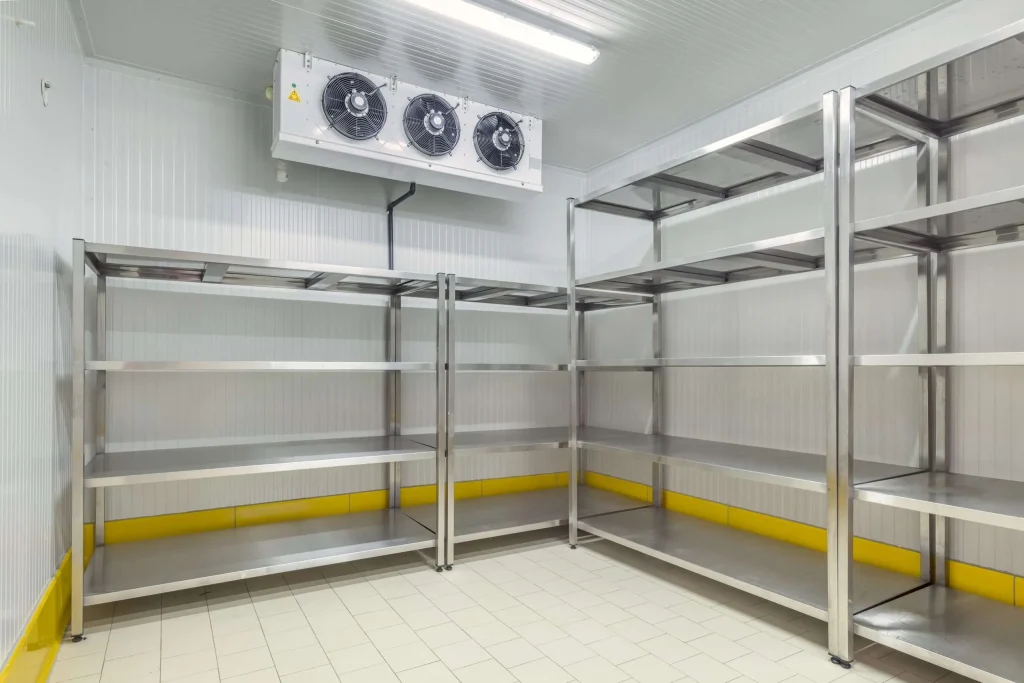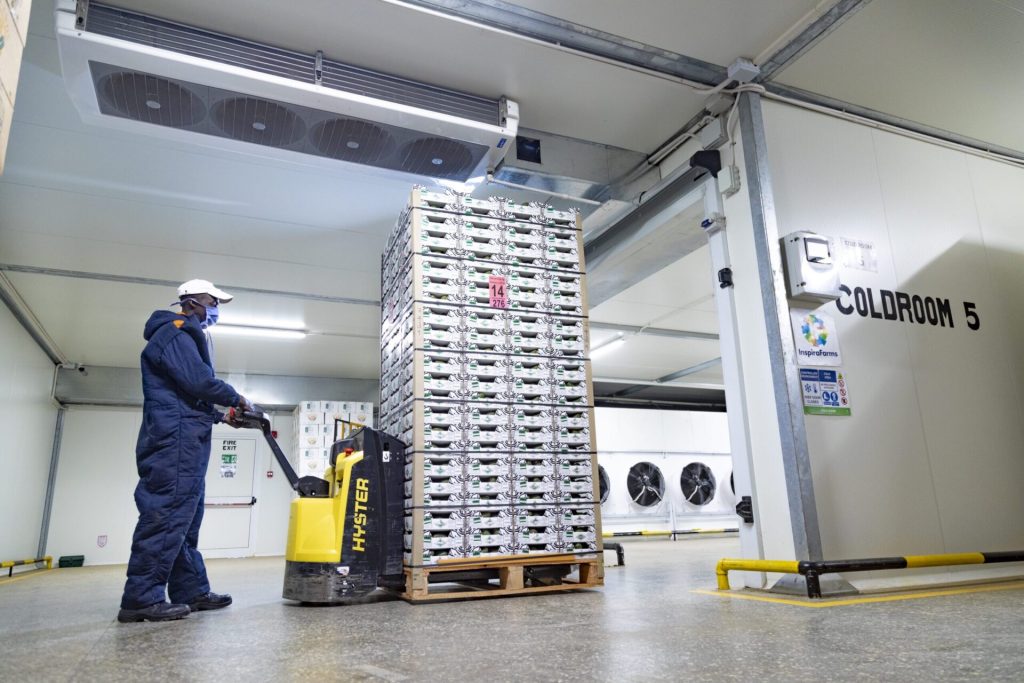

We are your reliable, trusted and professional company when it comes to Air Conditioning & Refrigeration in Uganda
At Fern Engineering & Supplies, we design, install, and maintain air conditioning and refrigeration systems that match Uganda’s climate and your daily routine.
Our refrigeration and air conditioning services are designed to give you comfort at your homes and offices, and steady cold for food, medicine, and production.
An AC or cold system moves heat from one place to another. The compressor circulates refrigerant. The condenser releases heat outside. An expansion device drops pressure.
The evaporator absorbs heat inside the room or cold room. Fans move air across coils. Control Units are perfect to keep temperatures stable. When each part works properly, rooms feel fresh and stock stays safe.
We areyour one stop center for cold rooms and freezer rooms for supermarkets and farms, display fridges for bakeries and cafés. Ice machines, water chillers, and process coolers for factories. We install, service, and repair all these, then stand by you, paka last.

We install split, multi split, cassette, and ducted AC systems for apartments, homes, offices, clinics, and retail. We match capacity to room size, sun exposure, and people count. Inverter models save energy by varying compressor speed. We plan condensate drainage, outdoor unit placement, and safe power supply. You get quiet, steady cooling that your family and staff appreciate every day.

We build chiller rooms for fruits and vegetables, freezer rooms for meat and fish, and back-of-house storage for restaurants and hotels. We supply serve-over counters, upright chillers, and bakery displays that present products well. We add temperature logging and alarms where needed. Floors, panels, and hinges handle Kampala traffic.

Factories and hospitals need precise cooling for equipment and processes. We design air cooled and water-cooled chillers with pumps, buffer tanks, and controls. We size piping and insulation, then commission the system under real load. Your production remains stable, and sensitive machines run within safe limits. We keep spares and respond quickly when you call.

We service all brands. We clean filters and coils, check fan bearings, test capacitors, confirm refrigerant levels, and calibrate thermostats. We inspect door gaskets, heaters, and defrost systems in cold rooms. We add timers, smart controllers, and night curtains where they save energy. Our goal is simple. Fewer breakdowns, lower bills, and longer equipment life.
Sizing depends on area, sun exposure, ceiling height, and people count. A typical 12 to 16 square meter bedroom often needs about 12,000 BTU, which equals 1 ton. A larger living room facing the afternoon sun may need 18,000 BTU. Offices with many computers and people require more capacity per square meter.
We confirm with a site survey. We measure, note glass area, and ask about usage patterns. We prefer a slightly larger inverter unit rather than oversizing a fixed speed unit. An inverter will throttle down when load is light, which saves energy and keeps temperatures steady without constant on and off cycles.
For homes and light offices, service every three months works well. Kampala dust clogs filters and coils quickly. For restaurants, server rooms, and supermarkets, monthly checks keep performance high. Cold rooms need routine cleaning, gasket checks, and defrost verification so ice does not choke airflow.
During service, we wash indoor and outdoor coils, clean filters, clear drains, test electricals, and check refrigerant charge. For refrigerators and freezers, we inspect door heaters, fans, and control sensors. These steps prevent high energy use, weak cooling, water drips, and noisy fans that annoy customers and staff.
Most modern AC units in Uganda use R32 or R410A. R32 offers better efficiency and a lower global warming potential than older gases. Commercial refrigeration varies. Many systems still use R134a or R404A, while newer designs move to lower GWP alternatives. We follow manufacturer guidance and UNBS recommendations for safe handling.
We recover and weigh refrigerant during repairs. We do not vent gas into the air. We pressure test and leak check with nitrogen and proper tools. We label systems with gas type and charge. This protects the environment, improves safety, and keeps performance consistent. You also avoid repeat top-ups that waste money.
Choose inverter AC where possible. Set temperatures at 23 to 25 degrees for comfort instead of very low settings that force long run times. Close doors and windows. Shade west facing glass. Clean filters monthly. Keep outdoor units clear of plants and dust. Small habits save real shillings every month.
For commercial fridges, keep door gaskets healthy, defrost on schedule, and use night curtains after closing. Do not pack products against evaporator fans. Leave space for airflow. Check temperature with a simple thermometer, not only the display. When you see higher bills, call us for an audit. We will find the leak points and fix them.
Yes, with correct sizing and clean power. Compressors need stable voltage and enough starting current. We size your generator or inverter to handle startup without deep dips. We add soft starters or inrush limiters for larger compressors. We also recommend voltage stabilizers on control circuits to protect boards from spikes.
During design, we list all cooling loads and their starting currents. We then confirm that your automatic transfer switch and distribution will handle them. You receive clear guidelines on which cooling to run on generator and which to keep on grid or solar. With this plan, you avoid overloads that trip breakers and cause downtime.
A well built cold room holds temperature for some time if you keep the door closed. The panels insulate, and product mass slows the rise. We recommend a generator or inverter for sites with frequent cuts because meat, fish, and dairy cannot tolerate long warm periods. We also add door alarms and temperature logs.
We size backup systems to keep the room within safe limits for your longest likely outage. We test recovery time after power returns. We teach staff to shorten door openings, and to move sensitive stock to the coldest zone when power drops. These habits prevent loss and keep audits clean.
Yes. We decommission the system safely, recover refrigerant, cap lines, and protect coils. We move panels, motors, and controls, then reinstall and pressure test. We replace driers and gaskets as needed. We then vacuum, charge, and commission the system. You get a fresh report and a new warranty on workmanship.
Relocations offer a chance to improve. We adjust pipe routes, raise outdoor units for better airflow, and refresh electrical protection. We also check if capacity still matches your new space. If you moved from Bugolobi to a larger spot-on Entebbe Road, we will confirm the new load and suggest upgrades were helpful.
A non inverter AC starts at full power and stops when the room reaches set temperature, then starts again. This causes temperature swings and higher energy use. An inverter AC varies compressor speed to match the load. It runs longer at lower power and holds temperature steady with less electricity.
In Uganda’s climate, inverter units handle hot afternoons and cooler nights efficiently. They also start smoothly on generators because they avoid hard current spikes once running. If your budget allows, go inverter. The lower monthly bills and better comfort repay the difference over time.
A single split AC usually installs in half a day to one day. Multi split, cassette, and ducted systems take longer. A small cold room may take four to seven days depending on civil works and power routing. We survey, share a clear quote, and agree a schedule that fits your hours.
We protect floors, drill carefully, and seal penetrations to avoid leaks. We pressure test with nitrogen, pull a deep vacuum, and charge to the correct weight. We run the system, confirm temperatures and pressures, and train your team. We leave a simple guide and contact numbers. You get neat work and a clean handover.
We offer manufacturer warranties on equipment and a workmanship warranty on our installation. We schedule routine service and keep a record of each visit. If something fails, you call or WhatsApp, share a short video or photos, and our team responds. We carry common spares to cut waiting time.
For commercial sites, we offer service level agreements with preventive checks, emergency response targets, and spare parts planning. We monitor key systems and alert you when performance drifts. You get predictable costs and fewer surprises. Your business stays open and your customers stay happy.
Schedule a free consultation with our team and let’s make things happen!